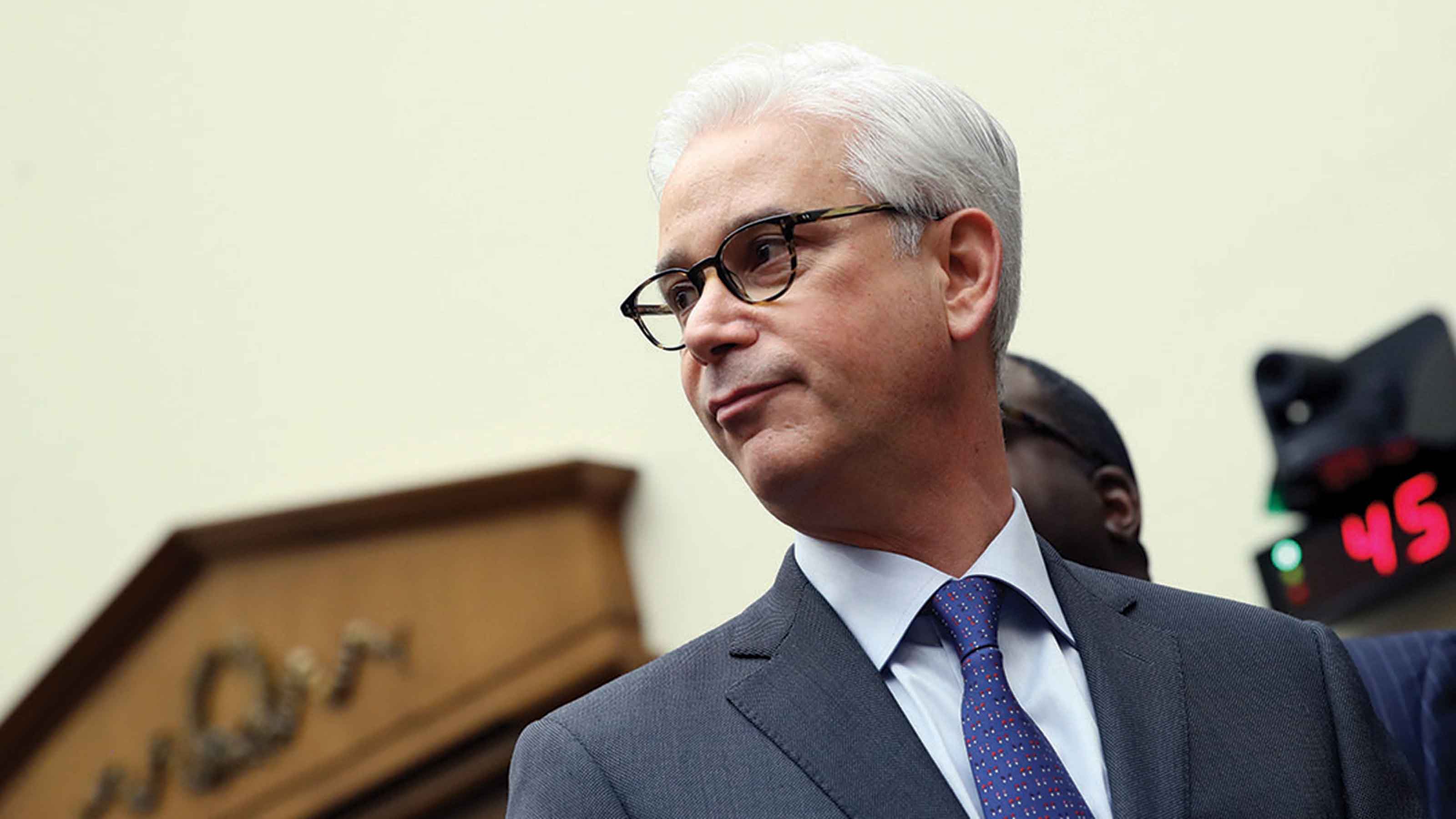What Should CEOs Earn?
CEO pay will keep rising sharply, partly because Americans aren't close to agreeing on what bosses should be paid.

Profit and prosper with the best of Kiplinger's advice on investing, taxes, retirement, personal finance and much more. Delivered daily. Enter your email in the box and click Sign Me Up.
You are now subscribed
Your newsletter sign-up was successful
Want to add more newsletters?
Republicans and Democrats tend to differ about whether big business is a positive or negative force in the U.S. economy, but on one point they usually agree: In these tough times, the high and rising pay of corporate executives is excessive.
Depending on how the question is phrased, between two-thirds and three-quarters of adults surveyed say CEOs are overpaid. That's true not only of political liberals, but also of moderates, most conservatives and those who identify with the tea party movement.
Critics of CEOs' high salaries increasingly measure this compensation in terms of what the average worker earns, pointing to a big increase in that ratio over the past few decades. And many Americans find it hard to understand why the boss gets a raise after a year when profits or revenues fall. The statistics seem to provide critics with plenty of fodder.
From just $107.88 $24.99 for Kiplinger Personal Finance
Become a smarter, better informed investor. Subscribe from just $107.88 $24.99, plus get up to 4 Special Issues

Sign up for Kiplinger’s Free Newsletters
Profit and prosper with the best of expert advice on investing, taxes, retirement, personal finance and more - straight to your e-mail.
Profit and prosper with the best of expert advice - straight to your e-mail.
CEO pay is huge and rising fast. In 2011, the median compensation of CEOs of companies in the Standard & Poor's 500 rose by 6%, to $9.6 million. That was in a year when total returns for S&P 500 shareholders were about 2% and profits rose 15%. In 2010, median pay for these CEOs rose 24%, after S&P 500 returns rose 16%. According to the Associated Press, which compiled the statistics, median compensation for S&P 500 CEOs was 244 times as much as the average American earned in 2011 (data on median income aren't available yet, but they would make the ratio even larger).
While CEOs enjoyed a median raise of 6%, average income rose 1%. The Economic Policy Institute says that the ratio of pay for bosses to that for workers was less than 50-to-1 from 1965 to around 1990 and started climbing sharply in the dot-com era. At 244-to-1, it is much higher in the U.S. than in Europe and other developed economies.
The broad animus toward CEO pay led to two reforms in the Dodd-Frank Act, both promising to give more leverage to critics of excessive CEO pay. The first, enacted last year, requires all public companies to give shareholders a chance to periodically pass judgment on pay packages for top executives -- a nonbinding "say on pay." The second, due out within a few months, is based on the relationship of what CEOs are paid to what the company's employees earn. Public companies must disclose the ratio of their CEOs' compensation to median compensation for all of their employees. Proponents hope that making this information public will shame corporate boards into limiting CEO pay. Some activists even hope for government-mandated restrictions.
But don't hold your breath waiting for CEO pay cuts or restrictions. Despite complaints that executive compensation is too high, neither the public in general nor shareholders specifically are inclined to do much about it. A large majority of adults -- around two-thirds -- oppose setting limits on CEO compensation. Shareholders who have an advisory say on pay bless their CEOs' compensation packages more than 98% of the time. Even when a majority of shareholders give the package a thumbs-down, it seems mostly an exercise in blowing off steam. Most of the time these shareholders are satisfied with a fuller explanation of why the amount is appropriate, and few "no" votes lead to major pay cuts.
One reason is that there's a big difference between deciding that CEOs earn too much and figuring out what they should be paid. Polls show that the public has no idea what CEO compensation should be based on. Some folks say worker pay; some, profits. Others say share prices or revenue. And some would consider how the company is doing relative to competitors or the economy as a whole. Each poses difficulties.
It's impossible, for example, to come up with any standard for what the ratio of CEO pay to worker pay should be, and most people will pass judgment on wide differences in these ratios without much reflection. The average worker at Citigroup makes several times what the average Walmart employee earns because the two businesses engage in very different operations and require very different skills from their employees. The ratio for a retail business such as Walmart, with a large number of low-paid cashiers and stockers, would naturally be much larger than for a financial services company with more-skilled workers.
Should a CEO of a smaller firm be paid something similar to the CEO of a firm three times as large? That's the implication if what really matters is the average worker's salary, which might be the same at both larger and smaller firms in the same industry. Larger firms are usually more difficult to run and generate more revenue, but that isn't counted simply by comparing CEO pay and worker pay.
Even tying compensation to performance isn't simple because there is no single way to measure performance. Last year, CEO performance based on profits was good, but less so compared with returns to shareholders, which were heavily influenced by the poor economy and sinking stock market. The value added by a good CEO can be hard to measure, even over a period of several years, much less based on a single year. When a CEO joins and helps a troubled company, who's to say how much worse things might have been?
Multi-million-dollar payouts for CEOs will continue to breed resentment, especially when the economy is slow and the stock market is struggling. Shareholders and advocates for pay caps will blow off steam about CEO pay now and then, but with little consensus about what that pay should be, little will be done to effect change.
Profit and prosper with the best of Kiplinger's advice on investing, taxes, retirement, personal finance and much more. Delivered daily. Enter your email in the box and click Sign Me Up.

-
 Timeless Trips for Solo Travelers
Timeless Trips for Solo TravelersHow to find a getaway that suits your style.
-
 A Top Vanguard ETF Pick Outperforms on International Strength
A Top Vanguard ETF Pick Outperforms on International StrengthA weakening dollar and lower interest rates lifted international stocks, which was good news for one of our favorite exchange-traded funds.
-
 Is There Such a Thing As a Safe Stock? 17 Safe-Enough Ideas
Is There Such a Thing As a Safe Stock? 17 Safe-Enough IdeasNo stock is completely safe, but we can make educated guesses about which ones are likely to provide smooth sailing.
-
 Airbnb Host Tells What It's Like
Airbnb Host Tells What It's LikeBusiness Costs & Regulation This Denver pharmacist began booking her ski condo a few months after the pandemic hit.
-
 Tough Times for a Family Business
Tough Times for a Family BusinessBusiness Costs & Regulation His dry-cleaning operation was rocked by the pandemic, but he is staying optimistic.
-
 IRS Gives Truckers a Tax Break in Response to the Colonial Pipeline Shutdown
IRS Gives Truckers a Tax Break in Response to the Colonial Pipeline ShutdownTax Breaks The tax penalty for using dyed diesel fuel for highway use is temporarily suspended.
-
 Reliving a Harlem Renaissance
Reliving a Harlem RenaissanceBusiness Costs & Regulation After a tough winter, two sisters look forward to reviving their restaurant’s business.
-
 Add a VPN to Surf the Internet Safely
Add a VPN to Surf the Internet SafelyTechnology To help you fight identity theft, consider adding a VPN.
-
 Stephanie Creary: Making the Case for Diversity on Corporate Boards
Stephanie Creary: Making the Case for Diversity on Corporate BoardsBusiness Costs & Regulation Adding underrepresented voices can improve a company’s bottom line.
-
 How We Lose When We Overlook Black Talent
How We Lose When We Overlook Black TalentBusiness Executives Comments from Wells Fargo CEO Charles Scharf (pictured) reflect a culture that tramples on clients’ trust and limits opportunities for people of color.
-
 Retirees, Create An Emergency Fund for Rental Property
Retirees, Create An Emergency Fund for Rental PropertyBusiness Costs & Regulation Build a cushion to protect your income from an unforeseen crisis.